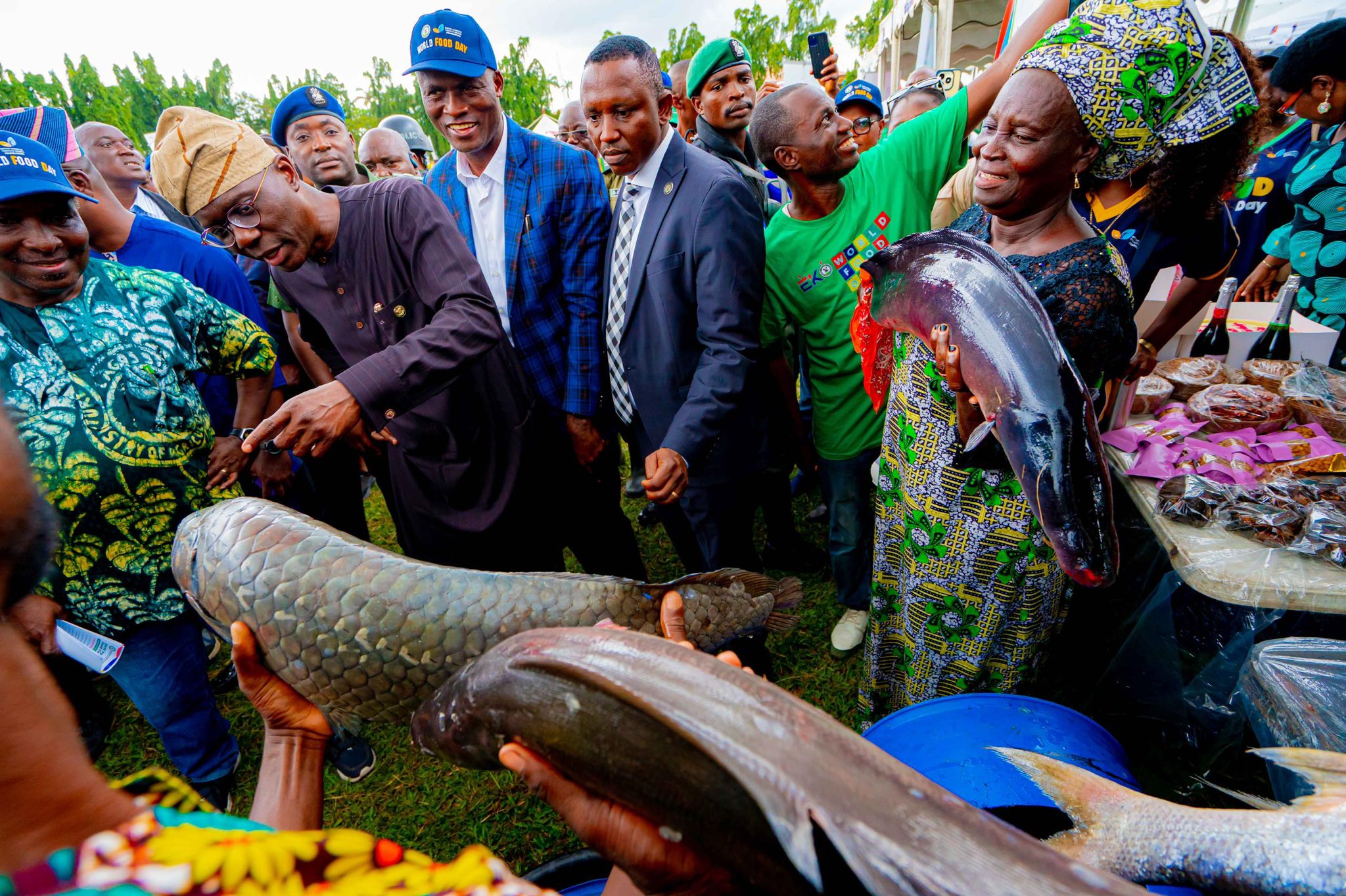Lagos State Governor, Babajide Sanwo-Olu, announced on Wednesday his administration’s substantial investments in the agriculture sector, aiming to establish it as a cornerstone of the state’s economy.
Speaking at the grand finale of the 2024 World Food Day celebration at the Police College in Ikeja, the governor emphasized the intentionality behind the state government’s agricultural policies.
To align with these objectives, Sanwo-Olu revealed plans to rebrand the Ministry of Agriculture as the Ministry of Agriculture and Food Systems.
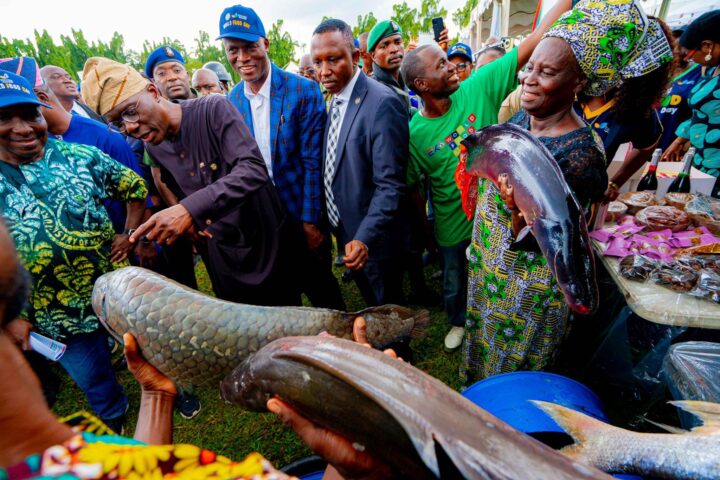
This change will enable the government to focus on food systems management, enhance agricultural mechanization, improve food safety standards, and ultimately lower food prices.
“We are actively pursuing a Food Systems Transformation Agenda designed to create a resilient and secure food ecosystem in Lagos,” he stated.
“This initiative will address post-harvest losses, alleviate traffic congestion around food markets, and boost state revenues. A significant project within this agenda is the Lagos Central Food Security System and Logistics Hub at Ketu-Ereyun, which we aim to complete by December 2024.”
Sanwo-Olu also highlighted the successful establishment of the Lagos Rice Mill in Imota, which operates at 32 tons per hour and has the capacity to produce 2.4 million bags of rice annually.
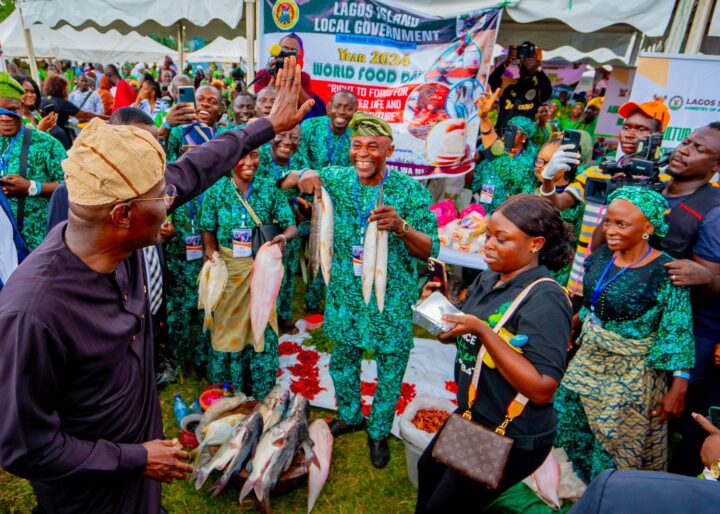
This initiative is expected to reduce reliance on imported rice while generating over 250,000 direct and indirect jobs, thus contributing to economic growth.
In a bid to modernize farming practices, he said his administration introduced the Eko Agro Mechanization Programme, integrating technology into agriculture.
Sanwo-Olu said partnerships with the private sector ensure that farmers across the state have access to necessary mechanization services, adding that to date, over 100,000 women and youth have been trained in various agricultural value chains, receiving support in inputs, infrastructure, and equipment.
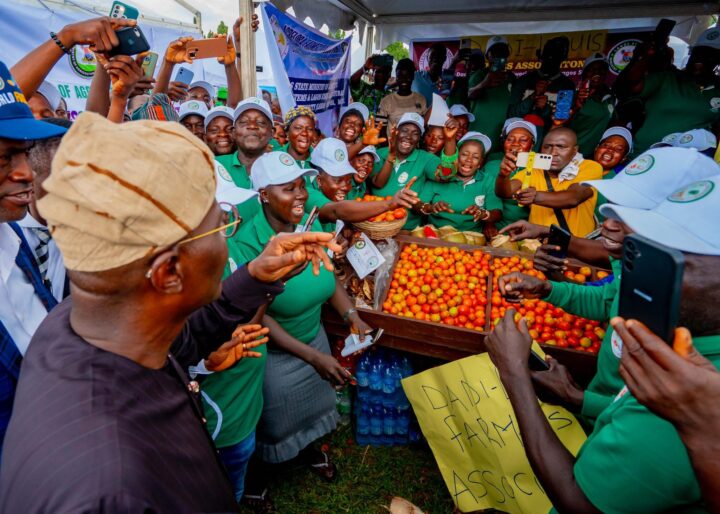
The governor also noted the significance of the Lagos Agricultural Scholars Programme, which aims to inspire secondary school students to pursue agriculture by equipping them with sustainable farming skills.
Additionally, he disclosed that the Cattle Feedlot Project at Igbodu is poised to cut cattle imports into Lagos by 50% over the next five years, promoting the availability of locally sourced, disease-free beef for residents.
Sanwo-Olu stressed that the Lagos Aquaculture Centre of Excellence (LACE) is pivotal in fostering growth within the aquaculture sector, addressing the increasing demand for fish while boosting the state’s economy.
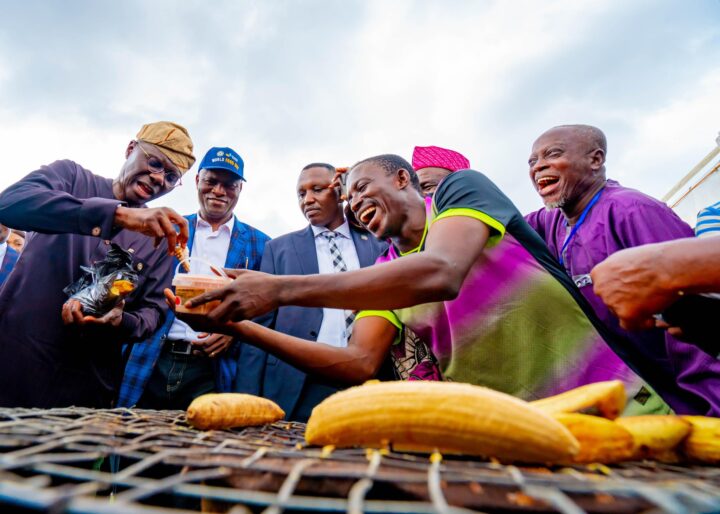
He also mentioned ongoing collaborations with the World Bank on projects such as the Agro-Processing, Productivity Enhancement, and Livelihood Improvement Support Project (APPEALS) and Lagos CARES, which are enhancing infrastructure, improving market access, and minimizing post-harvest losses for thousands of households.
“Under the Produce for Lagos initiative, we are identifying production clusters to amplify local food production. We are committed to supporting poultry farmers and vegetable growers by providing essential resources to enhance their yields,” he said.
Earlier, Dr. Oluwarotimi Fashola, the Special Adviser to the Governor on Agriculture and Food Systems, reinforced the ministry’s dedication to ensuring that all citizens have access to sufficient, safe, and nutritious food, crucial for active and healthy living.
He pointed out that poor nutrition, particularly a lack of fruits, vegetables, and essential vitamins and minerals, is a leading cause of immune deficiencies worldwide.
“To combat this, the Ministry and its agencies are committed to training and retraining both existing and aspiring farmers, fostering sustained growth in the sector and increasing its contributions to the state’s GDP in alignment with the THEMES+ Agenda of the Governor,” Fashola added.
